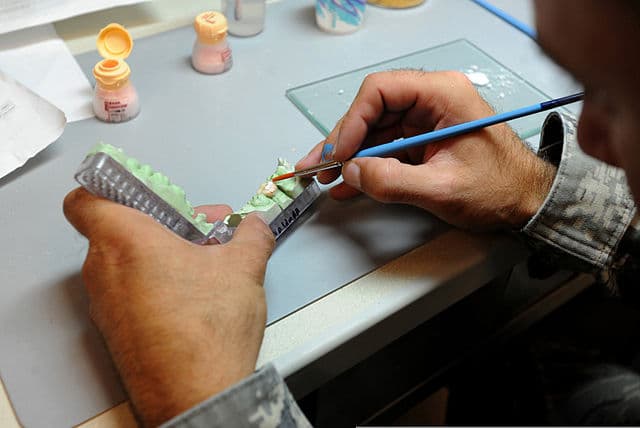
Dental crowns are nothing new in dentistry as they have been around for a while. Keep reading to see if getting a crown is a good option for you. If you find yourself in need of a dental crown, knowing the pros and cons can help you make the best decision for yourself.
What Is A Dental Crown?
A dental crown is like a cap that covers your tooth for restorative or esthetic reasons. Your dentist preps your tooth by removing material around your tooth. This creates space for the crown to fit onto your existing tooth. An impression is taken, and a replacement crown is made to fit your exact tooth. The final step is the cementation of the crown.
The procedure of getting a dental crown by your dentist is both easy and safe.
Pros Of Dental Crowns
A significant benefit of dental crowns is that they can serve many different purposes. Check out these many benefits that they can provide:
1. Esthetics: Crowns can be very representative of your natural teeth. If you get a porcelain crown, it can be matched in shape and color to your original tooth, and most people won’t even notice that you have a crown.
2. Replace large worn-out fillings: Crowns can also replace a large filling and add strength back into the tooth. All fillings break down over time, and it’s possible that your current filling is acting as a wedge in your tooth. A replacement crown can help to fix this by covering your whole tooth.
3. They can hold together a cracked tooth: Over time, your teeth may develop cracks. Sometimes these cracks are on the surface of your tooth. Occasionally they are deeper cracks. Depending on the severity of the fracture lines, your dentist may be able to treat these areas with a crown.
4. Protect a tooth after root canal: Most of the time, a dental crown is a suggested treatment following a root canal. A crown is recommended after a root canal because the tooth becomes more brittle once blood vessels and nerves are removed from the tooth.
5. Replace discoloration on your tooth: A crown can help fix teeth with abnormal staining or cosmetic defects such as fluorosis.
6. They can reshape a tooth: Crowns are used to reshape or resize a tooth, such as a peg lateral. A peg lateral is a tooth that erupts and is much smaller than those around it. Adding a crown to this tooth can help it appear more like the other teeth.
Cons Of Dental Crowns
As you can see, there are many reasons why a crown may be beneficial. It can be helpful to know the less ideal things about dental crowns before you commit to getting one. Then, you will be aware of your decision making and not surprised by any of these things:
1. Cost: The investment of a crown can vary. A crown typically costs between $1200 and $2500.
2. Preparation of tooth: Your dentist will remove the outermost layer of your tooth to make room for the crown to fit on top.
3. Possibility of needing a root canal: Sometimes, a crown doesn’t completely solve the sensitivity or a crack line that you are experiencing. A root canal may still be needed.
4. Possibility of recurring decay: It is possible to decay on the natural tooth portion supporting your crown. If this happens, your dentist will need to remove the decay and make a new crown.
5. Chance of sensitivity: While it is not very likely, it is possible that you may experience sensitivity following your crown.
Caring For Dental Crowns
Dental crowns don’t typically require any elaborate or fancy care. Treating them like you would your natural teeth and maintaining excellent home care with routine brushing and flossing will offer the best longevity for your dental crowns.
Taking your time brushing around the crown margin is important because bacteria and plaque like to sit where the crown connects to the root of your tooth. Recurring decay typically starts around or at the crown margin, so keeping this area clean can be extra helpful in preventing decay and extending the life of your crown.
If you have an older crown from decades ago, the chances are that it will need to be replaced at some point.
When you see your dentist for your routine exams, they can make sure that your crowns are doing well. They can clinically evaluate them and also check the x-rays for any signs of decay.
Do you have any other questions or concerns about getting a dental crown? We are here to get your questions answered so that you can get started with your best smile now!



Leave a Reply